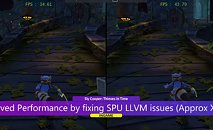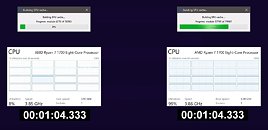
RPCS3 PlayStation 3 Emulator Gets Native arm64 Support on Linux, macOS, and Windows
The RPCS3 team has announced the successful implementation of arm64 architecture support for their PlayStation 3 emulator. This development enables the popular emulator to run on a broader range of devices, including Apple Silicon machines, Windows-on-Arm, and even some smaller Arm-based SBC systems like the Raspberry Pi 5. The journey to arm64 support began in late 2021, following the release of Apple's M1 processors, with initial efforts focused on Linux platforms. After overcoming numerous technical hurdles, the development team, led by core developer Nekotekina and graphics specialist kd-11, achieved a working implementation by mid-2024. One of the primary challenges involved adapting the emulator's just-in-time (JIT) compiler for arm64 systems.
The team developed a solution using LLVM's intermediate representation (IR) transformer, which allows the emulator to generate code once for x86-64 and then transform it for arm64 platforms. This approach eliminated the need to maintain separate codebases for different architectures. A particular technical challenge emerged from the difference in memory management between x86 and arm64 systems. While the PlayStation 3 and traditional x86 systems use 4 KB memory pages, modern arm64 platforms typically operate with 16 KB pages. Though this larger page size can improve memory performance in native applications, it presented unique challenges for emulating the PS3's graphics systems, particularly when handling smaller textures and buffers. While the emulator now runs on arm64 devices, performance varies significantly depending on the hardware. Simple applications and homebrew software show promising results, but more demanding commercial games may require substantial computational power beyond what current affordable Arm devices can provide.
The team developed a solution using LLVM's intermediate representation (IR) transformer, which allows the emulator to generate code once for x86-64 and then transform it for arm64 platforms. This approach eliminated the need to maintain separate codebases for different architectures. A particular technical challenge emerged from the difference in memory management between x86 and arm64 systems. While the PlayStation 3 and traditional x86 systems use 4 KB memory pages, modern arm64 platforms typically operate with 16 KB pages. Though this larger page size can improve memory performance in native applications, it presented unique challenges for emulating the PS3's graphics systems, particularly when handling smaller textures and buffers. While the emulator now runs on arm64 devices, performance varies significantly depending on the hardware. Simple applications and homebrew software show promising results, but more demanding commercial games may require substantial computational power beyond what current affordable Arm devices can provide.











